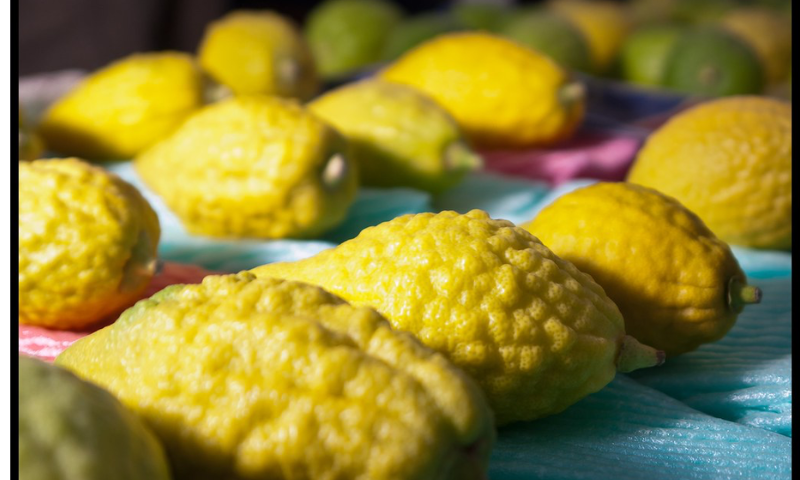S.Y. Agnon
Tablet, Sept. 25, 2015
“Rabban Gamliel purchased an etrog for one thousand zuz, and the sages did not even specify whether it was beautiful or not, and you set aside the choicest of etrogs on account of a few shillings?”
To witness how precious the mitzvah of Etrog is to the Jewish people one need only visit Meah Shearim between Elul and Sukkot. That neighborhood, which is like a withered plant all year long, becomes a verdant pleasure garden in that season, with stores full of etrogs, lulavs, and hadasim. Jews from all over Jerusalem crowd into those stores, inspecting the etrogs, lulavs, and hadasim, or sharing learned insights about them. Even the elderly, who never exit their own doorposts all year long, either due to weakness or fear of wasting moments from Torah study, come to purchase an etrog.
Because of the importance of this mitzvah, they go to the trouble to select their own etrog—after all, an etrog selected by someone else cannot be compared to one chosen by one’s own hand. These elderly jump from courtyard to courtyard and from shop to shop, with renewed youth and vigor as the shopkeepers run to and fro with boxes full of etrogs, each according to the stature of the customer, and the budget he has to spend. In between push young boys with little baskets woven of the lulav palm fronds, used to bind the Sukkot species together, beautifying the mitzvah, and beautiful in and of themselves on account of their lovely shape.
The morning after Yom Kippur I went to purchase an etrog for myself. I pushed my way into the shop of a seller of old books, who abandons book selling during the month or so before Sukkot in order to sell etrogs.
The shop was full of customers, aside from the usual scholars and the types that crowd about wherever crowds are gathered. A beautiful scent arose from the etrogs and hadasim, which masked the smell of old books, most of which had come from the apartments of poor folk, forced to sell off their libraries to buy Sabbath provisions or to marry off their daughters.
. … [To read the full article, click here]
________________________________________________________


